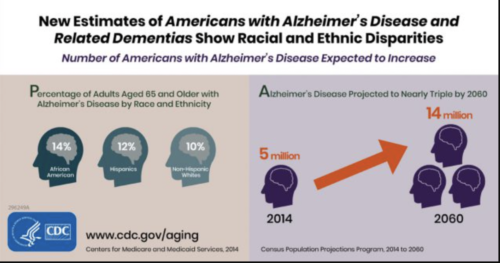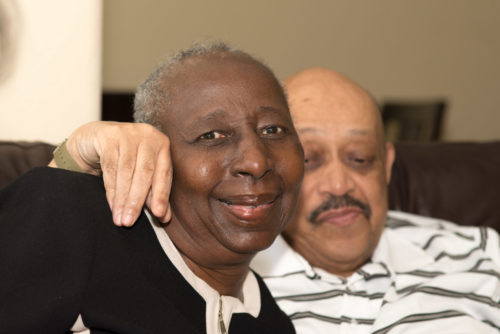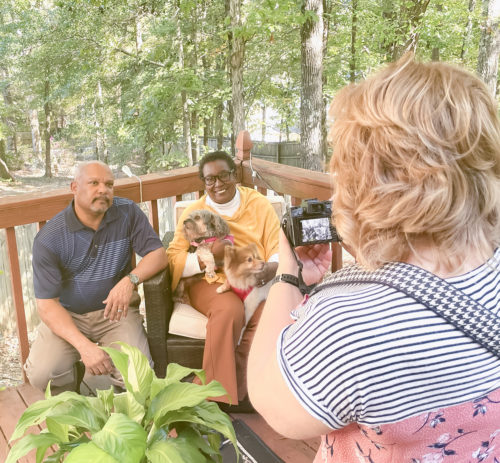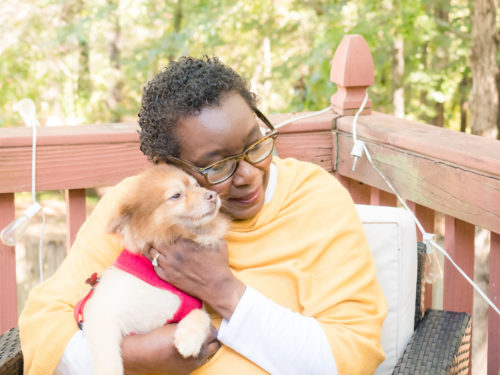The Alzheimer’s Disease/Dementia Experience
Is It Different for Blacks and Whites?

It would be so easy to use one broad stroke to explain what Alzheimer’s Disease is like for people. The symptoms, diagnosis, medical treatment, caregiving experiences, stigma and so on can be different from person to person and also from race to race. In honor of Black History Month, today we talk about the experience of African Americans.
Good to Know Before We Begin: Alzheimer’s Disease is one form of dementia. Dementia is a term describing a variety of those signs and symptoms we see. There are upwards of 400 types of dementia and Alzheimer’s Disease is one of those. This question comes up quite often.


Research trials are one way in which data is collected so we can learn more about specific diseases such as Alzheimer’s Disease. Trials are also how medications are tested. You can see how important it is to have data about all the ethnicities and genders involved. For instance, a clinical trial with only Caucasians would only tell us how Caucasian males tolerate a medication. The medication seems to work with Caucasian males, but what about others. It is so important for everyone to know signs and symptoms of Alzheimer’s disease and other forms of dementia and when to seek medical attention. This is one important reason raising awareness is so important to use at Doggies for Dementia foundation.

African Americans and Alzheimer’s Disease and Other Forms of Dementia
African Americans are twice as likely as non-Hispanic white Americans to have Alzheimer’s disease or a related dementia. Let’s just repeat that: TWICE AS LIKELY!
African Americans are at higher risk for dementia than any other ethnic racial group in the United States.
What’s the Problem?

Gracetta and her husband “Colonel”
Even though African Americans are at increased risk of dementia, including Alzheimer’s Disease, as a group, they typically do not seek medical attention when signs and symptoms begin. We may not see the harm in this, however as previous seen, it can impact how treatment is delivered. Also, delayed diagnosis raises the risk of complications. People with Alzheimer’s Disease and other forms of dementia may not take their medications properly, forgetting when and what they took for instance. Self-care and typical daily hygiene may also be impaired.
Safety is key and delayed diagnosis can be dangerous. Some symptoms associated with Alzheimer’s Disease and other forms of dementia can be treated and delayed early on, and in fact may not be Alzheimer’s Disease/dementia at all. Important education about how to manage the problems as well as family preparation can get missed. This is tragic. Even if the diagnosis is Alzheimer’s disease, early detection can give medications and other therapies a chance to slow down disease progression. Clinical trials may also be available.
We have a GEM for you! You can hear about the impact and reasons why African Americans and Alzheimer’s Disease is an important conversation first hand from our wonderful guest Arthena Caston. See our Experts Dig in with Doggies for Dementia below.
Caregiver Impact

Arthena and Virous Caston (with their cute pups) during their photography session with Carmen Davailus, Doggies for Dementia.
According to the Alzheimer’s Disease Research Institute, “African Americans who provide care to family members with Alzheimer’s disease or AD-related dementia experience greater hardship than Caucasian Americans, including more severe levels of depression, higher stress, lower levels of self-care, and poorer health. It is believed they are less likely to know about the community resources available to assist those with cognitive problems. It may also be that they do not have the convenient resources. When families need time off to take their loved one to an appointment, convenience matters.

Money Matters
Delayed medical attention costs money and can lead to dramatic lifestyle changes. We are talking higher healthcare costs for African Americans with symptoms of Alzheimer’s Disease or other forms of dementia. According to US Against Alzheimer’s, African Americans make up only 13% of the U.S. population but bear 33% of the nation’s total costs of Alzheimer’s care. How much are we talking about? According to the Alzheimer’s Disease Research Institute, “African Americans between the ages of 40 and 64 who are working while providing care to a loved one with dementia lose an estimated combined total of $6.1 billion in wages due to hours devoted to caregiving needs.” Anyone who has taken blocks of time out of their career building time know how lost time working can certainly impact future earning and their own retirement. Consider women or men who take years off to care for children. They’ve had years without income generation and social security earnings.
Couple the Caregiver Impact and Financial Impact and delayed diagnosis with the higher risk for dementia, and it is clear we need to do better with raising awareness and reaching African Americans. So, let’s go!

Welcome to today’s Experts Dig in with Doggies for Dementia. Today’s guest, Arthena Caston has an infectious laugh, joy all around her and a story to make you sit up and listen.

Arthena Caston
What would you do if you were faced with a diagnosis of Alzheimer’s Disease at the age of 51? After a time of mourning, she visited her local Alzheimer’s Association, and her life would not be the same. I suspect your life won’t be the same after you hear Arthena’s inspirational story. African Americans are often diagnosed later in the course of dementia, if at all.
African American populations age 65 and older will grow 224% by 2030, compared to a 65% growth rate for white Americans. We talk about this very important topic also.

About Doggies for Dementia: Doggies for Dementia is a 501c3 corporation with a mission to provide beautiful experiences and memories for those impacted by dementia using photography. We are also advocates with sights on raising awareness through education, so nobody has to experience the pain of stigma, isolation and loneliness. Experts Dig in with Doggies for Dementia is our program with interesting and informative interviews with experts from all realms including family members and professional caregivers. Grab a cup of coffee, pull up a chair and join us! ![]()
We are grateful to the Alzheimer’s Foundation of America for their generous grant in support of Doggies for Dementia Foundation.



